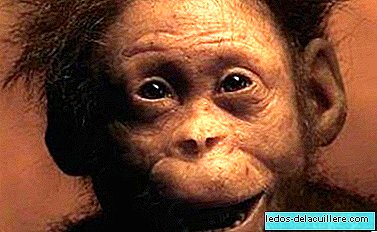
Reading things about anthropology I have found a theory, not completely scientific, but that has fascinated me and I have plunged into the books that present it. Is about farmer and hunter theory.
This theory, developed by an American journalist Thom Hartmann, would be framed in the concept of neurodivesity, which defends that the human model encompasses all individuals with their differences, and that, with great controversies, would apply to people with known conditions as autism spectrum disorders, people with ADHD and those with dyslexia.
I will focus on explaining the hypothesis of the farmer and the hunter, since neurodiversity, especially with regard to the TDHA is something that would give many explanations in favor and above all, in the majority of the scientific community, against.
Thom Hartmann, the disseminator of this theory, is the author of several best-sellers of scientific dissemination, maintains that ADHD has a strong genetic component and is a behavioral model that survives from our remote past, since its characteristics favored hunters prehistoric, so it has been reinforced over millions of years, being, therefore, a form of reaction quite widespread and hardly framed as a disorder.
THDA or hunter's mind
Impulsivity, rapidity of reactions, multifocalization of attention, energetic temperament, the physiological need for movement, activity and new experiences could, according to this theory, provide great advantages for survival in the environment that has been the natural one of the human species 99% of the time of our life on Earth as a species, life as hunters.
For this reason, also in the author's opinion, this type of behavior is much more frequent in men, since it was males who faced these challenges as mostly hunters.
Obviously, TDHA's biggest problem is in schoolsWell, in adult life, people who have this type of behavior or seek strategies to adapt to society or adapt society to their characteristics, developing professions that do not require immobility or attention focused on an intellectual theme in a unique way.
Undoubtedly, many geniuses who have given humanity progress and discoveries, at other times, in the normal school, could have been classified as problematic.
Edison's gene
Thomas Edison comes to mind, to whom I dedicated an entry to illustrate how the school model does not always adapt to all children and may even damage their ability to invent and their needs.
Precisely taking Edison as a model, Hartmann has written a book that I enjoyed reading, "The Edison Gene"In this work the author develops his hypothesis, the TDHA is not for him a disorder, since it provides natural abilities in the environment in which the species was born, life as hunters. The child with great physical activity and rapid concentration and in the short term it would have obvious advantages to survive in those environments.
School, the biggest problem for the child with THDA
However, in the school model, in which silence is required, sitting, listening without speaking and following a marked thread, without innovating or jumping from one issue to another, is constrained, bound and gagged, without that implying that, in most cases, the child has a problem, but the system is not adapted to their natural needs and boxes it as problematic and even as a patient in need of medication.
In the work Hartmann offers parents a guide to better understand their children and respect their particularities, offering them a suitable environment so that they can grow, learn and develop completely, building their capacities.
A different perception from the hypothesis of the hunter and the farmer
Another of his books "Attention Deficit Disorder. A Different Perception", in which he first developed this theory of the hunter and the farmer, offers a positive view of TDHA, completely removed from the conception that it is caused by a disorder or damage to brain function.
He defends that this condition, which classifies and labels children, making them feel like failures since childhood, will condition a poor adaptation in adult life if we are not able to see it as a mode of behavior within human diversity and that, it is presented , not as a pathology, but as a trait that was decisive for the survival of the species in prehistoric times.
Consider that children labeled with TDHA do not have that disorder, they just get bored. Everything would be in a different way of being and seeing the world, in his opinion, determined by biological adaptation. What do you think the hunter and farmer hypothesis?












